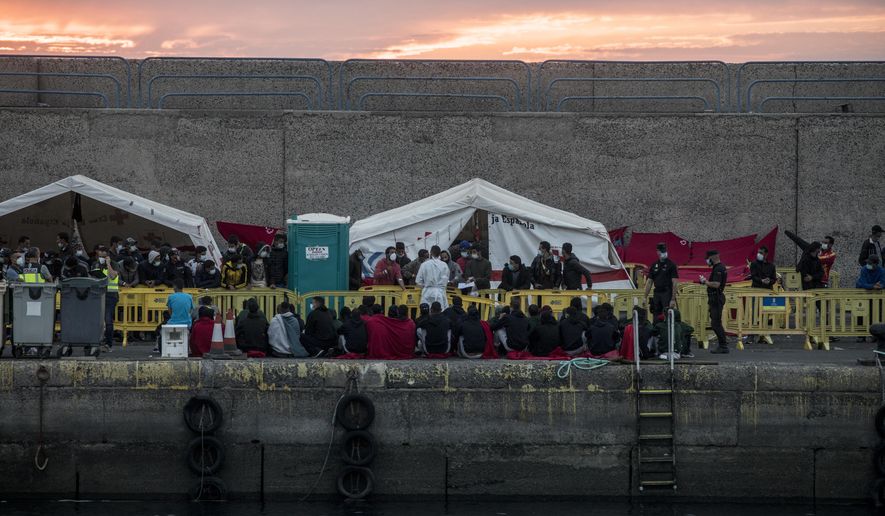BARCELONA, Spain (AP) - A row over where to house African migrants increasingly arriving by boat on Spain’s Canary Islands deepened Thursday, when the mayor of the most affected town urged the Spanish government to transfer them out of local hotels.
More than 20,000 West Africans and Moroccans have reached the archipelago in the Atlantic Ocean by boat or been rescued at sea so far this year, up from 1,500 in the same period of 2019.
Onalia Bueno, mayor of Mogán in Gran Canaria island, said the government should remove 3,471 migrants, including unaccompanied minors, from 10 hotels in her area by the year’s end, when hoteliers’ contracts expire, and take them to government facilities, including in the mainland.
“The solidarity of Mogán has an expiration date of 31 December,” Bueno said. She fears news of migrants being temporarily housed in resorts would tarnish the islands’ image as a tourism destination, especially for British holidaymakers.
Bueno threatened to fine hotels up to 300,000 euros if they continued to rent rooms to the government next year.
“We cannot continue to allow Gran Canaria to become a prison, a Lampedusa or a Lesbos due to this government’s inaction and lack of coordination,” she said.
Spain’s State Secretary for Migration Hana Jalloul rebuffed the ultimatum saying the hotels are an adequate transitional solution given the plunge in tourism caused by the coronavirus pandemic.
Questioned about the issue at a briefing with foreign correspondents, Jalloul asked: “If I left those migrants on the streets right now, social services would have to take responsibility for them. Do you think the mayor has the resources to house 3,400 migrants?”
The disagreement is the latest in months of tensions as Madrid tries to block the migrants from leaving for mainland Spain. It fears that could encourage more migrants to take the dangerous migration route to Europe, which has already cost at least 500 lives this year.
As a result, thousands of migrants stay in tents on the pier of Arguineguín in unsanitary conditions until they can be transferred to a hotel or one of the existing reception centers on the islands.
Though some hotels have been keen to help, some sector associations have expressed discontent with the Spanish government for not finding permanent solutions.
Jalloul said the government has some 7,000 temporary spots for migrants and asylum seekers on the archipelago, including 6,000 in hotels. She said the ministry is working on opening 7,000 additional beds outside of hotels.
Spain’s Interior Ministry is working on returning to Africa those who are not eligible for asylum, Jalloul said.
Spain, Italy, Malta and Greece, Europe’s main sea entry points for migrants and asylum seekers, have expressed concern that new proposals to revamp the EU’s asylum system would continue to leave them to cope with the challenge alone.
“The front-line member states cannot face the migratory pressure on the whole European Union,” the four countries said in a letter sent Wednesday to the European Commission.




Please read our comment policy before commenting.